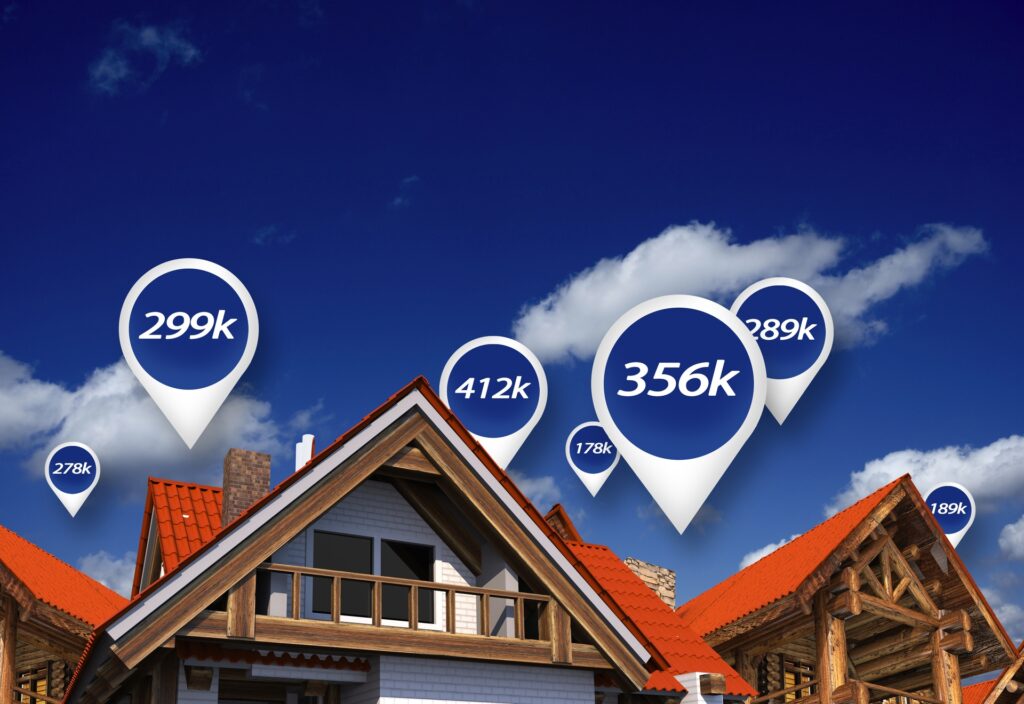Table of contents:
From in-person meetings to prolonged transaction processes, heavy paperwork, and long lines, the real estate sector has more or less been known to rely on conventional methods. Indeed, the same real estate sector is now striding rapidly toward digital transformation.
New technologies are revolutionizing the transaction and management of properties, enabling real estate companies to enhance efficiency, boost productivity, and provide superior customer experiences. Below, we explain what digital transformation means to real estate, why it is taking place, and some of the leading trends in the sector today.
What is Digital Transformation in Real Estate?
Take, for example, a property management firm that has always relied on paper files to store information about tenants, maintenance history, and leases. They are able to build a centralized, cloud-based system that stores all data securely and makes it quickly available through digital transformation.
Simply put, digital transformation in real estate is the incorporation of the latest-grade technology solutions into all aspects of real estate functions. The transition improves the way real estate firms conduct their business, manage data, communicate with customers, and provide services.
Digital transformation affects everything from property listings to customer communication to investment and maintenance decisions. Real estate firms have discovered innovative approaches to collating information, streamlining repetitive tasks, and forging genuine connections with their clientele. Utilizing digital transformation solutions also enables them to gain insights into their clients. It helps them to better align and optimize resource allocations while making data-driven decisions to improve their service.
What Is the Reason for Digital Transformation in Real Estate?
Different factors drive digital transformation in real estate. They show the need and value derived from such a move within today’s market.
Need for Efficiency
Previously, a real estate development firm dedicated approximately 40 hours per week to manual data entry and document processing. After implementing digital workflow tools, they reduced this to just 8 hours, freeing up significant human resources for strategic planning.
Traditionally, real estate involves a significant amount of manual processing, which can be time-consuming and costly. The digital tools automate these processes and make the transaction and management process much speedier.
Customer Expectations
Michael, a youthful professional, is keen on investigating apartment possibilities in an alternative city. He no longer has to leave his present location to arrange viewings, acquire immediate property details, and even pre-qualify for mortgages thanks to virtual reality tours and chatbots driven by artificial intelligence.
Presently, customers expect faster, more personalized, and transparent service. Real estate firms can achieve improved customer experiences through the implementation of a digital transformation strategy.
Data-Driven Decision Making
Digital transformation allows real estate firms to make more knowledgeable decisions with data analytics. For example, predictive analytics identifies buyer trends, investment opportunities, and maintenance needs even before they arise.
Sustainability Goals
With increasing concern for climate change, real estate has had a high demand for the adoption of sustainable practices. Digital transformation solutions such as energy management software can identify and reduce buildings’ energy consumption.
Competitive Advantage
Those who adapt faster to digital transformation technology have an edge over the rest. Why? This often translates into more clients, increased profitability, and even higher attainment of satisfaction rates.
Keeping that in mind, let’s dive a little deeper into what the top digital transformation trends taking over the landscape of real estate really mean for the future of the industry.
Top Digital Transformation Trends in Real Estate
The real estate industry is currently undergoing a digital transformation, leading to the emergence of numerous new technologies. The following trends demonstrate the impact of digital transformation on real estate, shaping the buying, selling, and management of properties.
#1 Artificial Intelligence (AI) and Machine Learning
AI and machine learning lie at the core of all digital transformation services in every industry, and real estate is no different. AI and machine learning let you automate complex tasks, amplify the decision-making process, and personalize customer interactions.
It also has predictive analytics features that provide valuable and actionable insights for agents. For instance, AI algorithms learn from market data to make predictions about trends in property prices, fluctuating rental rates, and occupancy. This also provides much-needed insight so real estate investors and agents can make better decisions and find lucrative opportunities.
Today, customer service also utilizes AI-powered chatbots. Such chatbots handle simple queries, provide information on properties, and even arrange viewings. They guarantee prompt and responsive service to customers 24/7. By automating the job, the real estate professional can focus more on high-value activities.
#2 Virtual and Augmented Reality
VR and AR have revolutionized the way people view properties. Through VR technology, buyers and tenants who could be located in any part of the globe can take a virtual tour of the property in question without necessarily having to physically show up at the place.This increases the reach of the particular property throughout the world. This is very helpful for international buyers or tenants who cannot view a property physically.
On the other hand, AR does something quite different. It enhances a physical tour by overlaying digital information, such as furniture placement options or details about the building’s layout, onto a real-world environment. This goes well to let the clients visualize themselves in space, allowing a more personalized view of the space.
#3 Blockchain for Transparent Transactions
Due to its transparency and security assurance in property transactions, blockchain has gained considerable attention in the real estate field. Essentially, a blockchain functions as a decentralized, tamper-proof ledger, permanently storing transaction details. Therefore, it is particularly suitable for real estate transactions, which often involve extensive paperwork.
With blockchain, real estate firms can design and automate processes for verifying property ownership, managing deeds, and even fractional property ownership. This makes the investment more viable and secure. If all that were not enough, blockchain smart contracts can also automate parts of property sales, further reducing the intermediaries and the fees associated with transactions.
#4 Big Data and Predictive Analytics
Data is at the core of real estate digital transformation, helping professionals gain insights from market trends down to customer preferences. Big data analytics enable professionals in the field of real estate to make decisions based on the analysis of patterns and trends inside large volumes of data.
For instance, predictive analytics can help agents and investors guess the direction in which the market is going to move, identify upcoming neighborhoods, and even optimize the right times to buy or sell. This data-driven technique simply means more informed decisions for greater profitability.
How We Can Help
North South Tech transforms real estate digital landscapes with precision and innovation. We engineer comprehensive technology solutions that modernize every aspect of your real estate operations. Our strategic approach tackles operational inefficiencies by implementing cutting-edge AI, blockchain, and predictive analytics technologies tailored specifically to your business needs.
We understand that digital transformation isn’t about adding technology but reimagining how your organization delivers value. Our technical architects design custom solutions that streamline data management, enhance customer experiences, and unlock competitive advantages. Whether you’re looking to automate workflows, implement virtual property tours, or develop intelligent customer service platforms, we translate complex technological potential into practical, measurable business outcomes.
Get your digital transformation blueprint. Schedule your complimentary technology assessment and see how North South Tech can future-proof your real estate enterprise.





